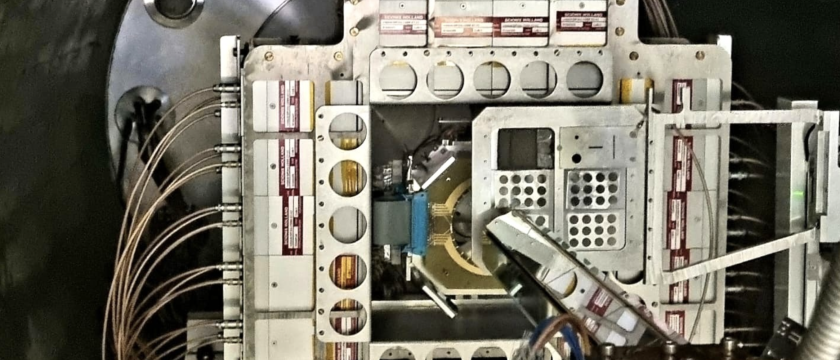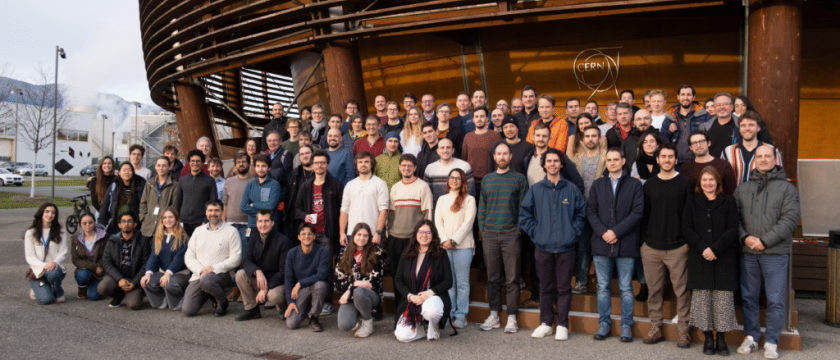Archive
Newsletter Articles

…
September - December 2025
How are the heaviest elements in the Universe formed? Looking at the periodic table, we know where the lightest elements come from. Hydrogen and helium were forged in the primordial nucleosynthesis that took place just moments after the Big Bang.…
Read MORE
…
September - December 2025
Participants of the 2nd Next Generation Triggers Technical Workshop at the Globe of Science and Innovation. Picture: Mariana Velho From 19 to 21 November 2025, the Next Generation Triggers (NGT) project held its 2nd Technical Workshop at CERN’s…
Read MORE
…
July 2025 - September 2025
After nearly two decades at the helm of NA61/SHINE, Marek Gazdzicki reflects in this interview on a lifetime at the SPS — from proposing the world’s first two-dimensional scan of nuclear collisions to the unexpected discovery of a large isospin…
Read MORE
…
July 2025 - September 2025
This summer, the Large Hadron Collider (LHC) delivered its first-ever collisions between light ions, opening a new chapter in the study of nuclear structure and the quark–gluon plasma (QGP) – the extreme state of matter that existed in the first…
Read MORE
…
July 2025 - September 2025
The Physics Briefing Book, a cornerstone document guiding the 2026 Update of the European Strategy for Particle Physics (ESPP), has been released by the Physics Preparatory Group (PPG) and is now available online. 🔗 Read the Physics Briefing Book…
Read MORE
…
July 2025 - September 2025
In July 2025, ATLAS recorded the first-ever collisions of light ions at the LHC — oxygen–oxygen (O–O) and neon–neon (Ne–Ne) — marking a new phase in the study of strongly interacting matter. These short, intense runs provided a unique opportunity to…
Read MORE
…
In July 2025, ATLAS recorded the first-ever collisions of light ions at the LHC — oxygen–oxygen (O–O) and neon–neon (Ne–Ne) — marking a new phase in the study of strongly interacting matter. These short, intense runs provided a unique opportunity to…
Read MORE
…
July 2025 - September 2025
The CMS experiment has reported first results from the LHC’s dedicated oxygen–oxygen (O–O) and neon–neon (Ne–Ne) collision run, offering an unprecedented look at quark–gluon plasma (QGP) formation in light-ion systems. These studies address long-…
Read MORE
…
July 2025 - September 2025
The Excellence in Detector and Instrumentation Technologies (EDIT) Schools are an established series of international training events dedicated to young researchers – graduate students and early-career postdocs – who want to deepen their knowledge…
Read MORE
…
July 2025 - September 2025
For the LHC Runs 5, starting in 2036, the ALICE collaboration is proposing a new apparatus, ALICE 3 (CDS record), to further investigate the properties of Quark–Gluon Plasma (QGP) following the physics measurement campaign of LHC Runs…
Read MORE